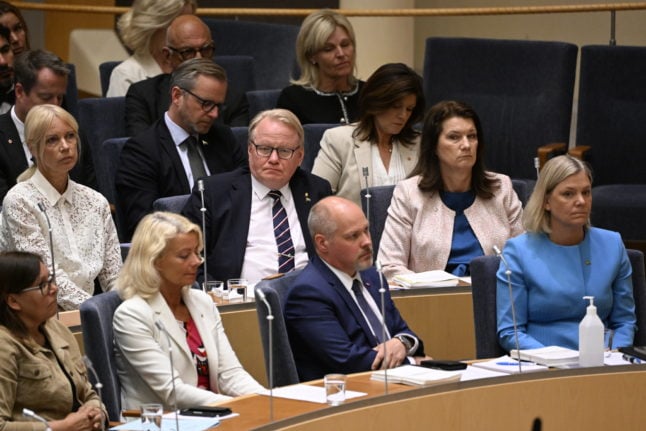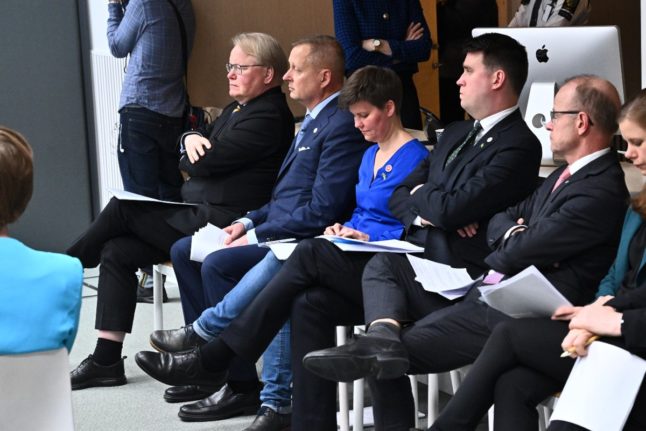Of Sweden’s 349 MPs, 174 voted to topple the long-serving minister, 97 voted against, 70 abstained and eight were absent, leaving the Sweden Democrats who filed the motion one vote short of the majority needed for it to pass.
As usually happens in Sweden, all MPs present stuck to their party lines, with the Sweden Democrats, Moderates, Christian Democrats, and Liberals all voting to fell Johansson, the Social Democrats voting to keep him, and the MPs for the Centre and Left parties abstaining.
Johansson’s position, and potentially that of the whole government, hang on the vote of one MP, Amineh Kakabaveh, who left the Left Party in 2019 after a dispute with the party leadership over her campaigning against the oppression of women among immigrant groups in Sweden.
Kakabaveh agreed to abstain in the vote on Tuesday morning after the Social Democrat’s secretary Tobias Baudin publicly stated that the party would stand by a deal it struck with her last November to support the Kurdish government in northern Syria. Kakabaveh is an Iranian Kurd who fled to Sweden as a teenager.
After the vote, Kakabaveh ran up to Johansson and hugged him.
“There has been a lot of pressure on both him and me and now it is over,” she said. “Morgan Johansson has done an extremely good job when it comes to ‘honour crimes’, as I said in the chamber just before the vote. Sometimes we should also praise each other.”
After the vote, Sweden’s prime minister Magdalena Andersson held a press conference in which she admitted that the political drama could have an impact on Sweden’s Nato application.
“There’s no doubt that the turbulence of the last few days could affect the image of Sweden, particularly in this sensitive situation,” she said.
She denied, however, that the party had made any additional pledges to Kakabaveh.



 Please whitelist us to continue reading.
Please whitelist us to continue reading.
Member comments